
Email all written work for the course to me at [email protected]
No Feelings Were Hurt in the Making of this Course.
At Berkeley (dir. Frederick Wiseman, 2013)
Cohen Media Group | 2015 Sizzle Reel
Cohen Media Group | 2016 Sizzle Reel
The Loser Moment: From time to time, usually during a two block class, I will take a moment to read you a passage from a work I like or play music for you and talk about it or show you a painting and talk about it. You can play around with the lighting. I will have a flashlight so I can read in the dark. Students are welcome to take your own loser moments. If you like the moment, please do a slow clap. But be sure not to join in the clapping. Since it will have been a loser moment, a failed slow clap is the best response.
Repetition, AND the LIMITS of RESEMBLANCE
Typos Matter! X-ING A PARAGRAB by Edgar Allan Poe 1850
NOTE BENE: You can find many great films on UF Kanopy and watch them for free. You will need to download a VPN onto your computer and then connect if you want to watch films on Kanopy off-campus. Instructions can be found here: vpn.ufl.edu
When you check out a DVD at the circulation desk in Library West, ask for a key to one of the media center rooms. There are four: F203, F204, F205 F206. These rooms are to the immediate left of the circulation desk. The elevator will be on your left and the rooms will be on your right as you approach your destination. (Do not go into the stacks.) The media center rooms are built for two, but three people can fit. You’ll just need to grab a chair nearby and bring it into the room.
and the media center key back to the circulation desk.
All beginnings are dangerous.--The poet has the choice of either raising feeling from one step to the next and thus eventually increasing it to a very high level--or else attempting a sudden onslaught and pulling the bell-rope with all his might from the beginning: both have their dangers: in the first case, that his audience may flee out of boredom, in the second, out of fear.
--Friedrich Nietzsche, Human, All Too Human II, "Mixed Opinions and and Maxims," section 163, ed. Gary Handwerk (Stanford UP, 2013), 67.
Since I know many students read online rather than in print, I will make sure we can always get to the page or to the shot we are discussing by having someone, either me or a student, standing near the computer at the front of the class so we can get there. I do not allow any electronic device such as iphones or ipads or laptops, etc. to be open during class. Everyone needs to be in class 100 percent. Learning is not something you can do well if you multi-task.
It may take you two to three weeks to get the hang of how this course works if you decide to take it. I will asking you to write and think and read in ways no other teacher has. I don't want you to be confused, hwoever, and merely default to doing what you already know to do. The point of taking this class is to learn some things you don't already know how to do. If you have any questions, please do ask them. I should add that my course websites are kind of like art installations you'll be walking through.
At times I may resemble a curator.
How do you see structure? How do you see a template? Boilerplate? How do you hear a sound system?
TENTATIVE SCHEDULE (Please expect minor adjustments to be made in the schedule from time to time; all changes will be announced both in class and on the class email listserv; this webpage will also be updated so do hit "refresh" on your browser to make sure you have the most recent version.)
August 24: What Is a Critical Edition? Watching Digital Film Editions / Social Media Film Criticism (clips, gifs, captures) Digital Cinema Package (DCP)
Review: ‘Filmworker’ Reveals Stanley Kubrick’s Perfectionism / S is for Stanley

Due August 27 After watching Rebecca (Alfred Hitchcock, 1940) without the audiocommentary on, write answers to these two questions: (1) without considering the plot, are the three most important scenes? (2) Without considering the plot, which two scenes seem to you most to demand closer critical attention and why? Number the questions one and two, and three, and put your name at the top of the document. Email your DQs in one word document with last name as the document title to me at [email protected].
DQs are always due by 5:30 the day before class.
August 28: Watching film as a film critic: what do you notice?
Required Viewing: Rebecca (Alfred Hitchcock, 1940) You may watch any edition on any screen.
Due August 29 by 11 p.m. Write two discussion questions on Leonard J. Leff's audiocommentary in the Criterion edition of Rebecca (Alfred Hitchcock, 1939), numbered one and two, and three film shots. Write two discussion questions and Three BIG WORDS on DEBORAH PARKER AND MARK PARKER, "Directors and DVD Commentary: The Specifics of Intention." (Four DQs and three big words in total.) Put your name at the top of the document. Just one document for everything. Email all work to me at [email protected] It is essential that you understand what I mean by discussion question. If you send me questions that are merely perfunctory or are not what I consider to be genuine discussion questions, I will not post them or accept them. If you don't see yours posted in the emails I send you each Monday and Wednesday, you can also ask me why I didn't during office hours or by appointment. I do really want to help you learn. And I am quite patient. We can communicate through it. My office is in 4314 Turlington.
August 30: Watching a film critically
Required Reading and Viewing:
1. DEBORAH PARKER AND MARK PARKER, "Directors and DVD Commentary: The Specifics of Intention"
2. Rebecca (Alfred Hitchcock, 1940) watch again, this time without the audiocommentary (just press "play.") watch with audiocommentary by Leonard J. Leff turned on by on the Laserdisc, DVD, or blu-ray.
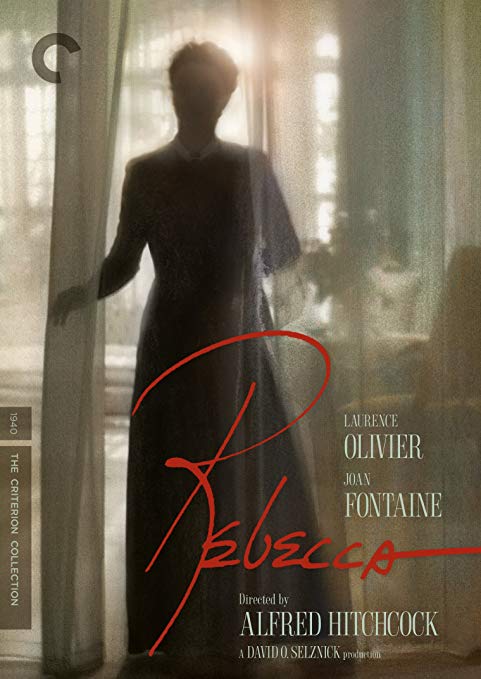
Romance becomes psychodrama in Alfred Hitchcock's elegantly crafted Rebecca, his first foray into Hollywood filmmaking. A dreamlike adaptation of Daphne du Maurier's 1938 novel, the film stars the enchanting Joan Fontaine as a young woman who believes she has found her heart's desire when she marries the dashing aristocratic widower Maxim de Winter (played with cunning vulnerability by Laurence Olivier). But upon moving to Manderley her groom s baroque ancestral mansion she soon learns that his deceased wife haunts not only the home but the temperamental, brooding Maxim as well. The start of Hitchcock's legendary collaboration with producer David O. Selznick, this elegiac gothic vision, captured in stunning black and white by George Barnes, took home the Academy Awards for best picture and best cinematography.
DQs are always due by 5:30 the day before class.
TWO-BLU-RAY SPECIAL EDITION FEATURES
- New 4K digital restoration, with uncompressed monaural soundtrack
- Audio commentary from 1990 featuring film scholar Leonard J. Leff
- Isolated music and effects track
- New conversation between film critic and author Molly Haskell and scholar Patricia White
- New interview with special effects historian Craig Barron on the visual effects in Rebecca
- Documentary from 2007 on the making of Rebecca
- Screen, hair, makeup, and costume tests including actors Joan Fontaine, Anne Baxter,
Vivien Leigh, Margaret Sullavan, and Loretta Young
- Casting gallery annotated by director Alfred Hitchcock and producer David O. Selznick
- Television interviews with Hitchcock and Fontaine from 1973 and 1980
- Audio interviews from 1986 with actor Judith Anderson and Fontaine
- Three radio adaptations of Rebecca, from 1938, 1941, and 1950, including Orson Welles s version for the Mercury Theatre
- Theatrical rerelease trailer
- PLUS: An essay by critic and Selznick biographer David Thomson and selected production correspondence, including letters between Hitchcock and Selznick
vs. the earlier DVD edition
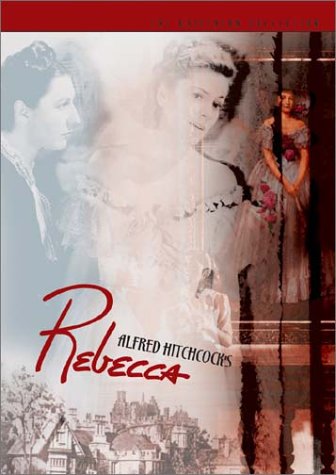
Special features
Isolated music and effects track New digital film and sound restoration
Rare screen, hair, makeup, and costume tests including Vivien Leigh, Anne Baxter, Loretta Young, Margaret Sullavan, and Joan Fontaine
Footage from the 1940 Annual Academy Awards ceremony, at which Rebecca won Best Picture and Best Cinematography Oscars Hundreds of behind-the-scenes photos chronicling the film's production from location scouting, set photos, and wardrobe continuity to ads, posters, lobby cards, and promotional memorabilia
Illustrated essay on Daphne du Maurier, author of the book on which Rebecca is based Hitchcock on Rebecca: excerpts from the director's conversations with filmmaker Francois Truffaut Phone interviews with star Joan Fontaine and Dame Judith Anderson from 1986 Hitchcock's casting notes
Reissue trailer Production correspondance and casting notes 1939 test screening questionnaire
Complete broadcast of the 1938 Campbell Playhouse radio adaptation, starring Orson Welles and the Mercury Theatre players, including an interview with Daphne du Maurier 1941 Lux Radio Theatre broadcast starring Ronald Colman & Ida Lupino, including and an interview with David O. Selznick
1950 Lux Radio Theatre broadcast starring Laurence Olivier & Vivian Leigh Liner notes by Robin Wood, author of the groundbreaking book Hitchcock's Film and Hitchcock's Film Revisited in a 22-page booklet
DUE SEPTEMBER 4 by 5 p.m. Two discussion questions on Cat People (Alfred Hitchcock, 1939), numbered one and two, and Three Shots. Put your name at the top of the document. Email all work to me at [email protected]
September 5:
Required Viewing: Cat People (dir. Jacques Tourneur, 1942)

The first of the horror films producer Val Lewton (The Body Snatcher, I Walked with a Zombie) made for RKO Pictures redefined the genre by leaving its most frightening terrors to its audience s imagination. Simone Simon (La bête humaine) stars as a Serbian émigré in Manhattan who believes that, because of an ancient curse, any physical intimacy with the man she loves (Kent Smith) will turn her into a feline predator. Lewton, a consummate producer-auteur who oversaw every aspect of his projects, found an ideal director in Jacques Tourneur (Out of the Past), a chiaroscuro stylist adept at keeping viewers off-kilter with startling compositions and psychological innuendo. Together, they eschewed the canned effects of earlier monster movies in favor of shocking with subtle shadows and creative audio cues. One of the studio s most successful movies of the 1940s, Cat People raised the creature feature to new heights of sophistication and mystery.
BLU-RAY SPECIAL EDITION FEATURES
- New, restored 2K digital transfer, with uncompressed monaural soundtrack
- Audio commentary from 2005 featuring film historian Gregory Mank, with excerpts from an audio interview with actor Simone Simon
- Val Lewton: The Man in the Shadows, a 2008 feature-length documentary that explores the life and career of the legendary Hollywood producer
- Interview with director Jacques Tourneur from 1977
- New interview with cinematographer John Bailey about the look of the film
- Trailer
- PLUS: An essay by critic Geoffrey O'Brien
September 6 Screening W 9-11 ROLFS 115 Cat People (dir. Jacques Tourneur) Criterion edition with audio commentary from 2005 featuring film historian Gregory Mank, with excerpts from an audio interview with actor Simone Simone.
Due September 6 by 11 p.m. Which scene do you think Mank gives the best critical commentary? 2. Which scene do you think Mank gives the worst?
September 7:
Cat People (dir. Jacques Tourneur) Criterion edition with audio commentary from 2005 featuring film historian Gregory Mank.


GIF clip as silent movie
mp4 clip from Suspicion with sound
Sounds from No Country for Old Men mashup
Due September 10 by 5 p.m.: Two discussion questions onThe Devil & Daniel Webster (dir. William DIeterle, 1941), numbered one and two, and three shots. Put your name at the top of the document. Email all work to me at [email protected] I will no longer post this info below. Except for Wednesday screenings, when DQs are due by 11:30 p.m., DQs are always due by 5:30 the day before class.
September 11:
Required Viewing:
The Devil & Daniel Webster (dir. William DIeterle, 1941). The DVD is on course reserve in Smathers (Library West)

Recommended Viewing
Watching a Supplement about a Film Producer
Val Lewton: The Man in the Shadows, a 2008 feature-length documentary that explores the life and career of the legendary Hollywood producer
Available both on the Criterion edition of Cat People (dir. Jacques Tourneur) and on the Val Lewton Collection
be? Answer with reference to Friedkin's audiocommentary over two separate scenes that you find the most i
September 12 W 9-11 ROLFS 115 Screening of Island of Lost Souls with audio-commentary by film historian Gregory Mank
Due September 12 by 11:30: Write two DQs on two specific moments in the audio-commentary and three shots.
September 13:
Island of Lost Souls (dir. Erle C.Kenton, dir. 1932) with audio-commentary by film historian Gregory Mank turned on.
Recommended Reading:
Eckart Voigts-Virchow Paratracks in the Digital Age: Bonus Material as Bogus Material in Blood Simple (Joel and Ethan Coen, 1984/2001)
DUE Sept 17 DQs et all due by 5:00 p.m.
First Paper DUE Sunday September 23 by 11:59 p.m.
September 18: Watching film as a film scholar
Required Viewing:
Carl Th. Dreyer's DAY OF WRATH (1942) I have the DVD on reserve in Smathers. You may also want to stream it by searching it on UF's libary west. Day of Wrath Criterion Collection/Janus Films, 1943.  streaming
streaming
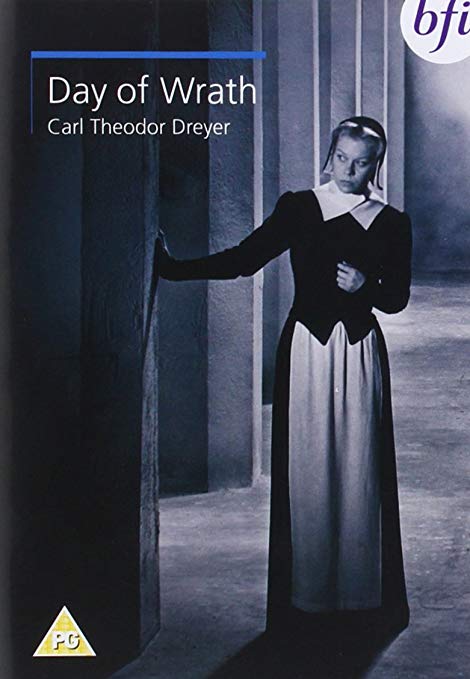
Screening W 9-11 ROLFS 115
BFI edition of Day of Wrath with audio-commentary by Dreyer expert Casper Tybjerg.
The BFI DVD with Tyberg's audio-commentary is on reserve in Smathers (Library West)
Recommended Viewing:
Häxan (dir. BENJAMIN CHRISTENSEN, 1922) also with audio-ommentary by Danish silent film scholar Casper Tybjerg

Due September 19 by 11:30 p.m. Which two scenes arguably deserve closer critical attention than Tyberg gives them in his commentary than and why?
First Paper DUE Sunday September 23 by 11:59 p.m.
September 20:
Required Viewing:
Carl Th. Dreyer's DAY OF WRATH

First Paper DUE Sunday September 23 by 11:59 p.m.
Click here for the assignment. Email all work to me at [email protected] Do the film clip assignment and record an audiocommentary that covers that scene.
Due September 24 by 11:30 p.m. In your informed opinion, which two scenes have the most illuminating critical commentary?
September 25: Watching film as a film scholar
Required Viewing: Ran (dir. Akira Kurasowa, 1985)
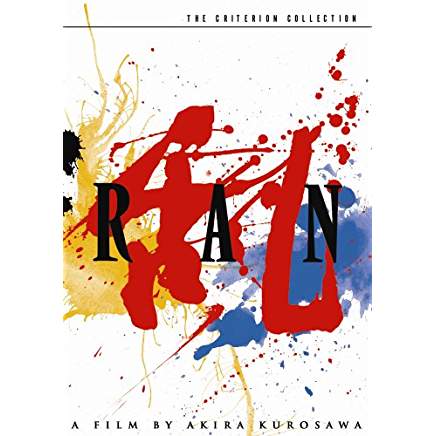
September 26 Screening Of Ran (The Criterion Collection) (1985) in Rolfs 115 with audio-commentary by Stephen Prince.
HITCHCOCK / KUROSAWA — THE AXIAL CUT
September 27
Required Viewing:
Ran (The Criterion Collection) (1985) with audio-commentary by Stephen Prince.

Getting to the Root of the New Tree of Life SEP 28, 2018
By Benjamin Mercer ON FILM / FEATURES —
DQS and BG due October 1 by 5.p.m.
October 2: A.K., A French New Wave director makes a "making of" documentary about Ran.
Required Viewing:
A.K. (directed by Chris Marker, 1985; a supplement on the Criterion DVD)
Recommended:
Junkopia - A Short Film by Chris Marker
Hara-Kiri (Dir., Masaki Kobayashi )
DVDBEAVER review of ten digital editions of Ran.
October 3: Required Viewing: Screening W 9-11 ROLFS 115. 205 minutes. If there is not enought time to watch the entire film, we will watch what is left at the screening next Wednesday.
DQs are due by 11:59 p.m.
October 4:
Required Viewing: Andrei Rublev (dir. Andrei Tarkovsky, 1996)
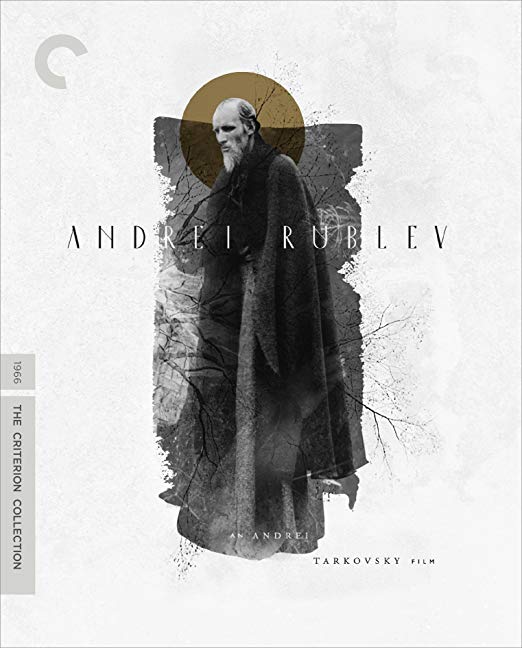
Tracing the life of a renowned icon painter, the second feature by Andrei Tarkovsky vividly conjures the murky world of medieval Russia. This dreamlike and remarkably tactile film follows Andrei Rublev as he passes through a series of poetically linked scenes—snow falls inside an unfinished church, naked pagans stream through a thicket during a torchlit ritual, a boy oversees the clearing away of muddy earth for the forging of a gigantic bell—gradually emerging as a man struggling mightily to preserve his creative and religious integrity. Appearing here in the director’s preferred 185-minute cut as well as the version that was originally suppressed by Soviet authorities, the masterwork Andrei Rublev is one of Tarkovsky’s most revered films, an arresting meditation on art, faith, and endurance. SPECIAL EDITION FEATURES • New 2K digital restoration of the director’s preferred 185-minute cut, with uncompressed monaural soundtrack • New 2K digital transfer of the original 205-minute version of the film, The Passion According to Andrei • Steamroller and Violin, Tarkovsky’s 1961 student thesis film • The Three Andreis, a 1966 documentary about the writing of the film’s script • On the Set of “Andrei Rublev,” a 1966 documentary about the making of the film • New interviews with actor Nikolai Burlyaev and cinematographer Vadim Yusov by filmmakers Seán Martin and Louise Milne • New interview with film scholar Robert Bird • Selected-scene commentary from 1998 featuring film scholar Vlada Petric • New video essay by filmmaker Daniel Raim • New English subtitle translation • PLUS: An essay by critic J. Hoberman
DUE MONDAY, October 8 by 5:00 p.m.: Write two DQs AND look up three BIG WORDS on the Robert Bird reading and turn in your word doc to me at [email protected] .
October 9:
Required Reading:
Robert Bird, "Chapter 3 The Shape of the Story," Andrei Rublev (BFI, 2004) pp. 34-64. I added some additional pages, just fyi. Here is the pdf:
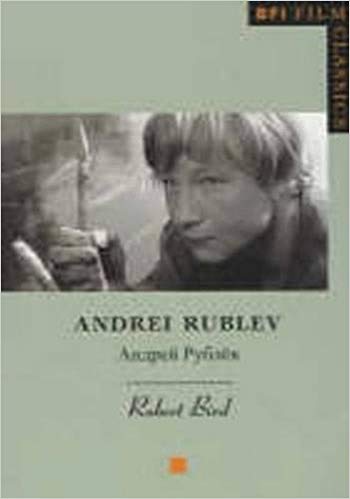
IN CLASS VIEWING October 9: New interview with film scholar Robert Bird;
Screening Wednesday October 10, Andrei Rublev (dir. Andrei Tarkovsky, 1966) The rest of the Criterion Blu-Ray addition we didn't see at the previous screening; selected-scene commentary from 1998 featuring film scholar Vlada Petric. The DVD on reserve in Library West (Smathers) also has the audio-commentary.
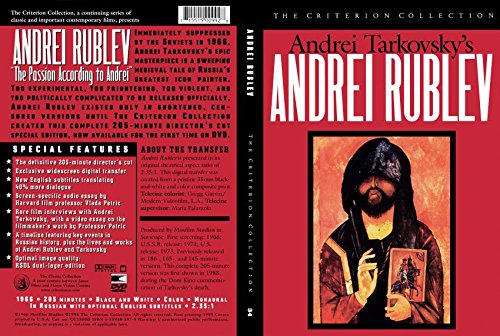
DQS due on the audio-commentary and three shots October 10 by 11:30 p.m.
October 11:
Required Viewing: Andrei Rublev (dir. Andrei Tarkovsky, 1966) and selected-scene commentary from 1998 featuring film scholar Vlada Petric

Recommended Viewing:
One Day in the Life of Andrei Arsenevich (dir. Chris Marker, 1999)
DQs due October 15 (I will no longer post the due dates as you know by now that the DQs are alwys due by 5:00 p.m. the day before class except when there is a Wednesday screening.)
October 16:
Required Viewing: L'Avventura (dir. Michelangelo Antonioni, 1960) On Kanopy here.

October 18:
Required Viewing: L'Avventura (dir. Michelangelo Antonioni, 1960) On Kanopy here.
In class we will look at the chapter and chapter titles and think about different ways the film might be divided into chapters and different ways it might be organized to connect shots as well soundtrack theme music. Think hyperlinks instead of linear chapters. Eighteenth-century novel titles: Henry Fielding, Tom Jones, Book XVI. Containing the Space of Five Days

October 23:
Required Viewing: Birth of a Nation (dir. D.W. Griffith, 1915) You do not need to get the blu-ray. The KINO DVD is on reserve in Smathers Library. The KINO restored edition is available online for rental here.
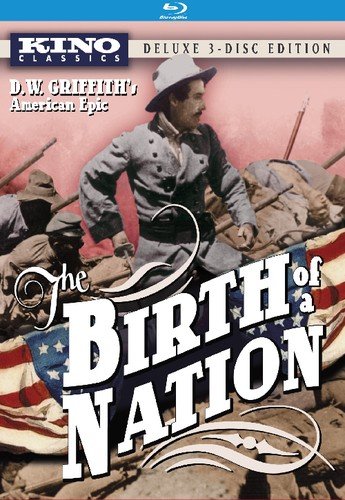
or you may watch the
Twilight Time Limited Edition preservation/reconstruction from Patrick Stanbury and Kevin Brownlow

Recommended Viewing and Reading:
A history of the American people by Wilson, Woodrow Publication date 1908, c1902
The neoliberal (Harvard) recovery of Baldwin: Why James Baldwin's 'A Talk To Teachers' Remains Relevant 54 Years Later
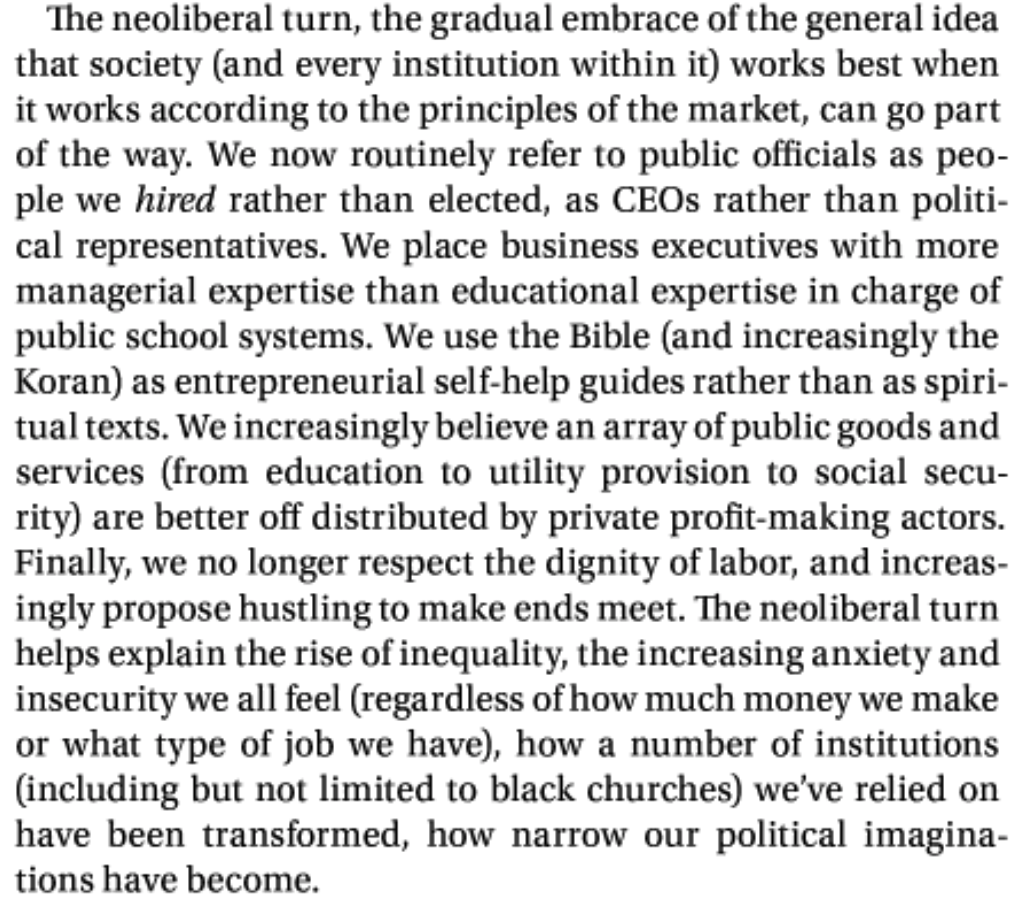
--Lester Spence, Knocking the Hustle
Neoliberalism in The Black Community - Bill Fletcher with Dr Lester Spence
the-desegregation-and-resegregation-of-charlottes-schools
Tim Black / The Black Agenda Report / James Baldwin's pin drop speech / I Am Not Your Negro (a recent documentary on Baldwin available on UF Kanopy) time stamp -23:13 on the Dick Cavett Show
Why Black Lives Matter Had to Happen 2015

(Bernie Sanders gives over the microphone and stage to the protesters and lets them talk as long as they want to talk and say whatever they want to say. What matters is not so much what the protestors say but the fact that they can say it. This is called democracy.)
Compare the above to this scene: Democratic Convention of 1968 (debate over who has the microphone)

Jonathan Taplin, "Rebirth of a Nation Can states’ rights save us from a second civil war?"
October 25:
Required Viewing:
Sorry to Bother You (dir. Boots Riley, 2018) (You will have the rent or purchase the film.) :(

Boots Riley, Lakeith Stanfield, Tessa Thompson, Jermaine Fowler, Terry Crews & Steven Yeun On "Sorry
(Thanks to Lexi)

In Class Viewing:
Crane Shot from Gone with the Wind directed by Victor Fleming MGM 1939 cited by Spike Lee in BlacKKKsmen (2018)
I Am Not Your Negro (a recent documentary on Baldwin available on UF Kanopy) time stamp -23:13 on the Dick Cavett Show
vs.
Destroying The Myths of Market (Corporate) Fundamentalism Forum (MUST WATCH!)
Recommended Reading:
#Charlestonsyllabus

--Lester Spence, Knocking the Hustle
Neoliberalism in The Black Community - Bill Fletcher with Dr Lester Spence
Nathaniel Rich "James Baldwin & the Fear of a Nation"
"“On one side of town I was an Uncle Tom,” said James Baldwin in an interview with The Paris Review, “and on the other the Angry Young Man.” But the list of epithets was much longer than that. Robert Kennedy, apoplectic at Baldwin’s statement in a private meeting in 1963 that black Americans couldn’t be counted on to fight in Vietnam, called him a “nut.” Harold Cruse, who attended the same meeting with Kennedy, complained of Baldwin’s “intellectual inconsistencies,” while Richard Wright, his earliest idol and first champion, considered him an ungrateful apostate. To Eldridge Cleaver, Baldwin was a traitor, with a “grueling, agonizing, total hatred of the blacks, particularly of himself, and the most shameful, fanatical, fawning, sycophantic love of the whites.” British Immigration named him a persona non grata and J. Edgar Hoover, who kept a case file on Baldwin at the FBI that ran 1,884 pages long, declared him “a well-known pervert” and a threat to national security.
Baldwin, for his part, accepted no characterization. “A real writer,” he wrote, “is always shifting and changing and searching.” The credo guided his work and his life. He moved to France at the age of twenty-four to avoid “becoming merely a Negro; or, even, merely a Negro writer.” Later he would recoil whenever someone described him as a spokesman for his race or for the civil rights movement. He rejected political labels, sexual labels (“homosexual, bisexual, heterosexual are twentieth-century terms which, for me, really have very little meaning”), and questioned the notion of racial identity, an “invention” of paranoid, infantile minds. “Color is not a human or a personal reality,” he wrote in The Fire Next Time. “It is a political reality.”
Gil Scott-Heron - Whitey On the Moon (Official Audio) vs. Hidden Figures (2017)

October 30:
Required Viewing: Othello (dir. Orson Welles, 1952)
Required Reading: Nicholas Dames, "The Chapter: A History" (2014)
Required Reading: (you may skim it; no DQs required, but do look it over): Dorothee Birke, "Direction and Diversion: Chapter Titles in Three Mid-Century English Novels by Sarah Fielding, Henry Fielding, and Charlotte Lennox" in Studies in Eighteenth-Century Culture, Volume 41, 2012, pp. 211-232.
Write one DQ and Two Shots on the film and one DQ and one BIG WORD on the reading.
Recommended Reading:
Anne Toner, Ellipsis in English Literature: Signs of Omission (2015)
Rebecca Comay, The Dash—The Other Side of Absolute Knowing (Short Circuits)
At this point in the semester, I am now going to introduce a new game we will play irregularly and unpredictably. This is the game: I show you two passages, each taken from two books I've been reading recently, and will have you read them in class. The passages I will show you are both good, so I expect nto everyone in othe class will agree. Then you have to write down your answer. Then I will twll you the correct answer. Don't worry if you lose. I'll explan very carefully and concisely why the students who agree with me and me are correct. :)
In class we will compare the chapter divisions and titles of different editions of Welles' Othello
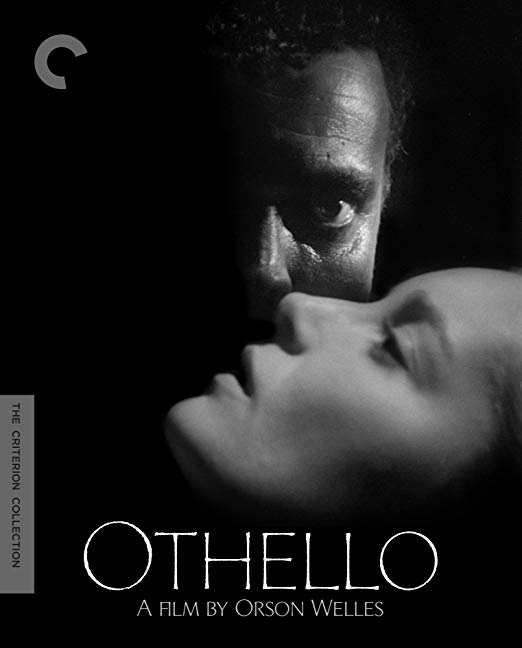
TWO-BLU-RAY SPECIAL EDITION FEATURES
- New, restored 4K digital transfers of two versions of the film, the 1952 European version and the 1955 U.S. version, with uncompressed monaural soundtracks
- Audio commentary featuring filmmaker Peter Bogdanovich and Orson Welles scholar Myron Meisel
- Return to Glennascaul, a 1953 short film made by MacLiammóir and actor Hilton Edwards during a hiatus from shooting Othello
- New interview with Welles biographer Simon Callow
- New interview with Welles scholar François Thomas on the differences between the two versions
- New interview with Ayanna Thompson, author of Passing Strange: Shakespeare, Race, and Contemporary America
- Interview from 2014 with Welles scholar Joseph McBride
- More!
- PLUS: An essay by film critic Geoffrey O’Brien
Recommended:
The Lost Work of Orson Welles at MoMA
Essays on Film Versions (in French) by François Thomas
Essays on Film Restoration and Preservation
Filming Othello (1978)
Othello 1952 (French release version), alternate opening and alternate ending
Jean-François Cornu, "Le générique parlé de l’Othello d’Orson Welles (I) Un dilemme hamlétien pour le sous-titrage"
Paul Robeson's Broadway Othello, Act V, Scene II (1944)
Paul Robeson discusses Othello
November 1:
At this point in the semester, I am now going to introduce a new game we will play irregularly and unpredictably. This is the game: I show you two passages, each taken from two books I've been reading recently, and will have you read them in class. The passages I will show you are both good, so I expect nto everyone in othe class will agree. Then you have to write down your answer. Then I will twll you the correct answer. Don't worry if you lose. I'll explan very carefully and concisely why the students who agree with me and me are correct. :)
Required Viewing: Othello (dir. Orson Welles, 1952) with audio-commentary featuring filmmaker Peter Bogdanovich and Orson Welles scholar Myron Meisel. You can find the the Criterion laserdisc Othello with the audiocommentary on Youtube. I have also put an earlier badly "restored" version DVD on reserve in Smathers (Library West)
Required Reading: Gérard Genette and Bernard Crampe, "´Structure and Functions of the Title in Literature,"
Critical Inquiry, Vol. 14, No. 4 (Summer, 1988), pp. 692-720
Write one DQ on the film and two shots plus one DQ on the reading and two BIG WORDS.
Recommended Reading: Jack Jorgens' chapter on Welles' Othello in Shakespeare on Film (Bloomington: Indiana University Press, 1977), 175-90.
Gerard Genette and Marie Maclean, Introduction to the Paratext New Literary History, Vol. 22, No. 2, Probings: Art, Criticism, Genre (Spring, 1991), pp. 261-272
In class, we will watch this Criterion supplement: "New interview with Welles scholar François Thomas on the differences between the two versions."
Close Captioning is also worth paying attention. Sometimes words of dialogue drop out. Think Duncan on the captions on Kanopy's Othello.




Recommended:
PERSPECTIVES ON OTHELLO: JOSEPH McBRIDE ON ORSON WELLES, an extra on the Carlotta 2014 Othello Blu-ray and DVD.
Financing Othello - With Audio Commentary
The First Film Audio Commentary
Sebastian Lefait, Filming Othello
Erich Auerbach, Mimesis "The Weary Prince"
David Impasto, "Othello and the Welles-Smith Restoration: Definitieve Version?" Shakespeare BulletinFall 1992, pp. 38-41

Alberto Anile, Othello without the "H"

The Orson Welles / A. F. Lavagnino Collaboration - Alhambra A 9043
Peter Donaldson's chapter "Mirrors and M / Others in Othello" in Shakespearean Films / Shakespearean Directors, 93-126.
Excerpts from Alberto Anile's Othello Without the "H"
Carlotta films press-release Othello
Othello d'Orson Welles: bande-annonce 2014

Messed up aspect ratio for the youtube upload of the 1992 restoration
November 6:
Required Viewing: Touch of Evil (dir. Orson Welles, the reconstructed version) The DVD is on reserve in Smathers (Library West).
Recommended Reading:
Orson Welles Memo to Universal Studios on how Touch of Evil should be edited and scored.
In class we will compare the chapter divisions and titles of different editions of Touch of Evil
LIMITED EDITION 2 x BLU-RAY ONLY
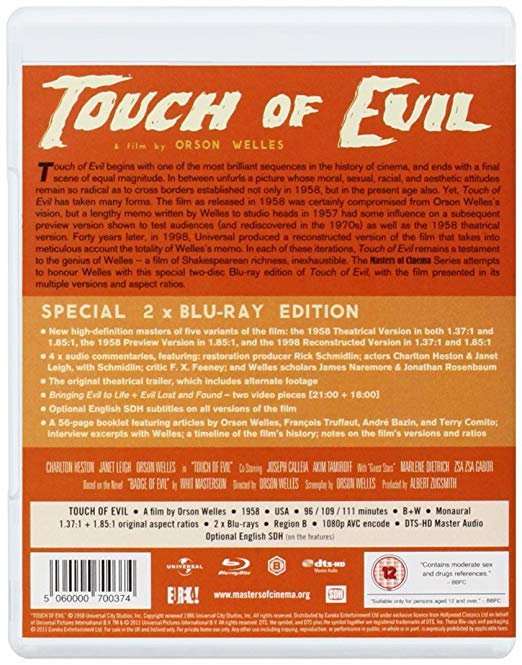
November 8:
Required Viewing:
Orson Welles' Touch of Evil with audiocommentary by Welles scholars James Naremore & Jonathan Rosenbaum.
In place of DQs on the film, 100 words maximum on this question about the audiocommentary: "Which critic is better, Rosenbaum or Naremore? Why?"
Required Reading:
Jacques Derrida and Tom Conley, "Title (To Be Specified)" in SubStance, Vol. 10, No. 2, Issue 31: The Thing USA: Views of American Objects (1981), pp. 4-22
Write one DQ and Look up two BIG WORDS on the Derrida essay.
In Class Viewing: We will compare the soundtracks on the reconstructed and theatrical release openings.

Watch a Criterion, KINO, Cohen Media, or Flicker Alley narrative film we have seen in class on UF Kanopy, not on disc. But before you do, make sure that UF has a DVD of the film. I recommend that you pick a film that is between 60 and 90 minutes. The assignmnt, or exercise, has three parts: 1. Design your own chapters and chapter titles. Give time stamps and image captures for where you chapters begin. 2. Now look at the chapter titles on the DVD and compare yours to those. (You make screen captures of chapter titles on the menu and give the time stamp on the film). How long are your chapters compared to those on the DVD? How many chapters do yours have? 3. Write a 200 word essay explaining why you think your titles are better or worse than those on the DVD.
November 13:
Required Viewing: The Devil is a Woman A Criterion DVD from 2006 is on reserve in Smathers (Library West).

I have scheduled a screening of Shanghai Express (Criterion blu-ray) on Wednesday, November 14 at 4:05 in ROLFS 115.
November 14: SCREENING: ROLFS 115, PERIODS 9-11: Shanghai Express Criterion blu-ray edition without audio-commentary.
November 15:
Required Viewing:
Shanghai Express Criterion blu-ray edition
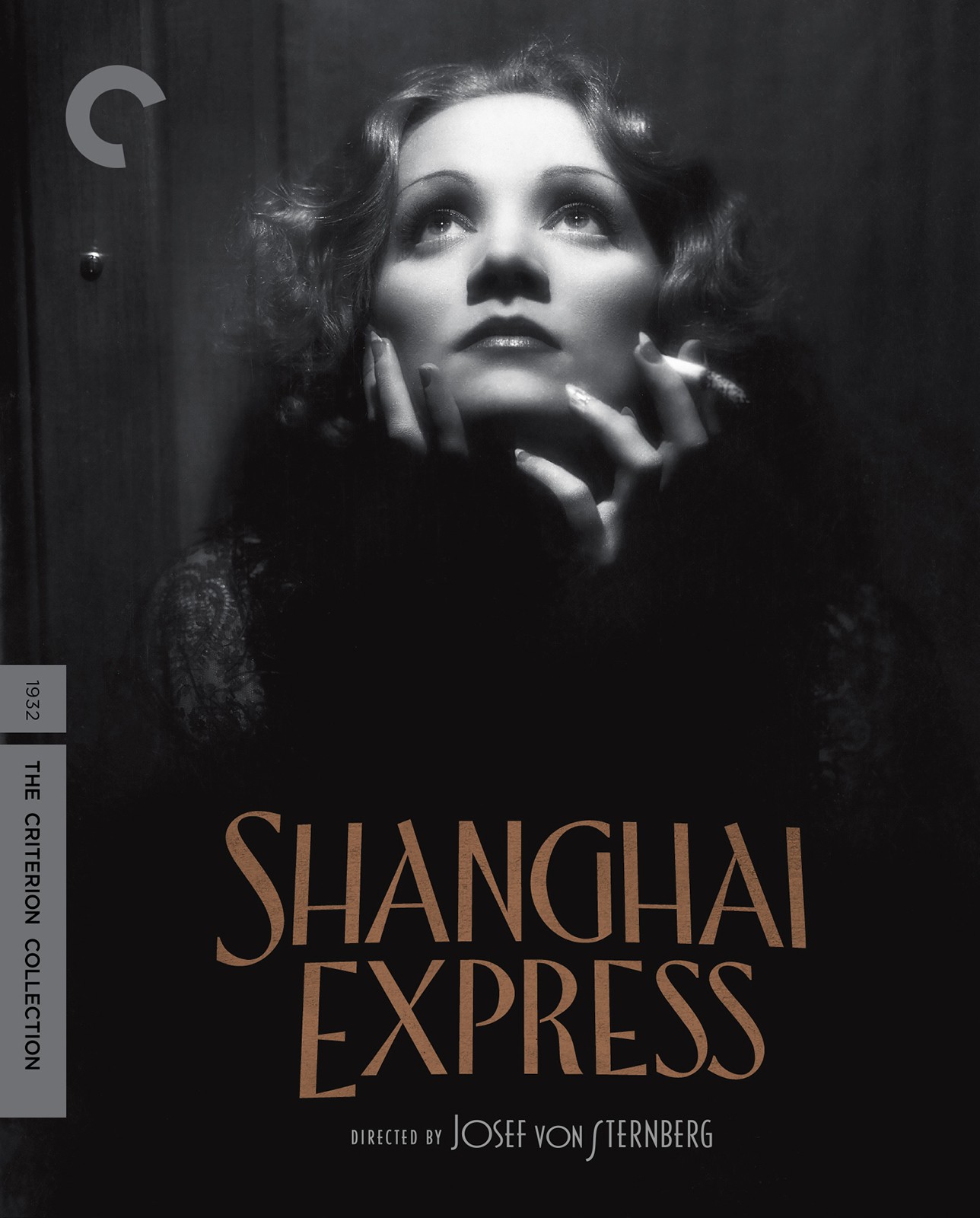
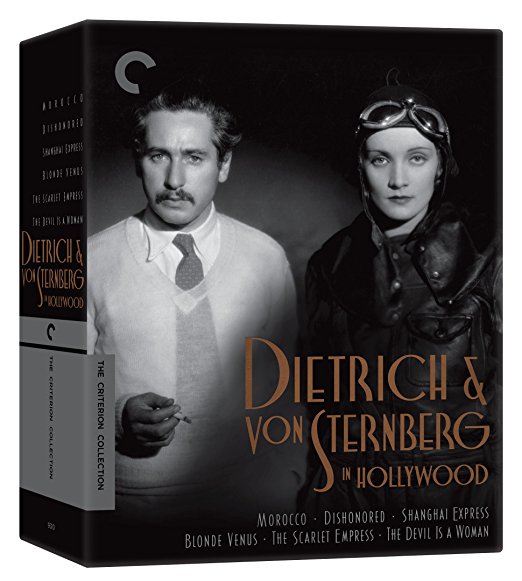
Extras on the Morocco disc
Watch a Criterion, KINO, Cohen Media, or Flicker Alley narrative film we have seen in class on UF Kanopy, not on disc. But before you do, make sure that UF has a DVD of the film. I recommend that you pick a film that is between 60 and 90 minutes. The assignmnt, or exercise, has three parts: 1. Design your own chapters and chapter titles. Give time stamps and image captures for where you chapters begin. 2. Now look at the chapter titles on the DVD and compare yours to those. (You make screen captures of chapter titles on the menu and give the time stamp on the film). How long are your chapters compared to those on the DVD? How many chapters do yours have? 3. Write a 200 word essay explaining why you think your titles are better or worse than those on the DVD.
Email your paper (as an attachment) to me at [email protected]. Put your name in the subject title or header of your title. Put your name in your paper.
Grading: I will meet with you in person to discuss your paper with you. PLEASE BE ADVISED: If you didn't do the asignment, your grade is an automatic E. If didn't put your name on your paper, it's an automatic E. If you didn't have a proper title, it's an automatic E. If you didn't have a thesis, it's an automatic E. One third of your grade will be based on your title; one third on your thesis; and one third on the rest of your paper.
Fandango Movie Clips
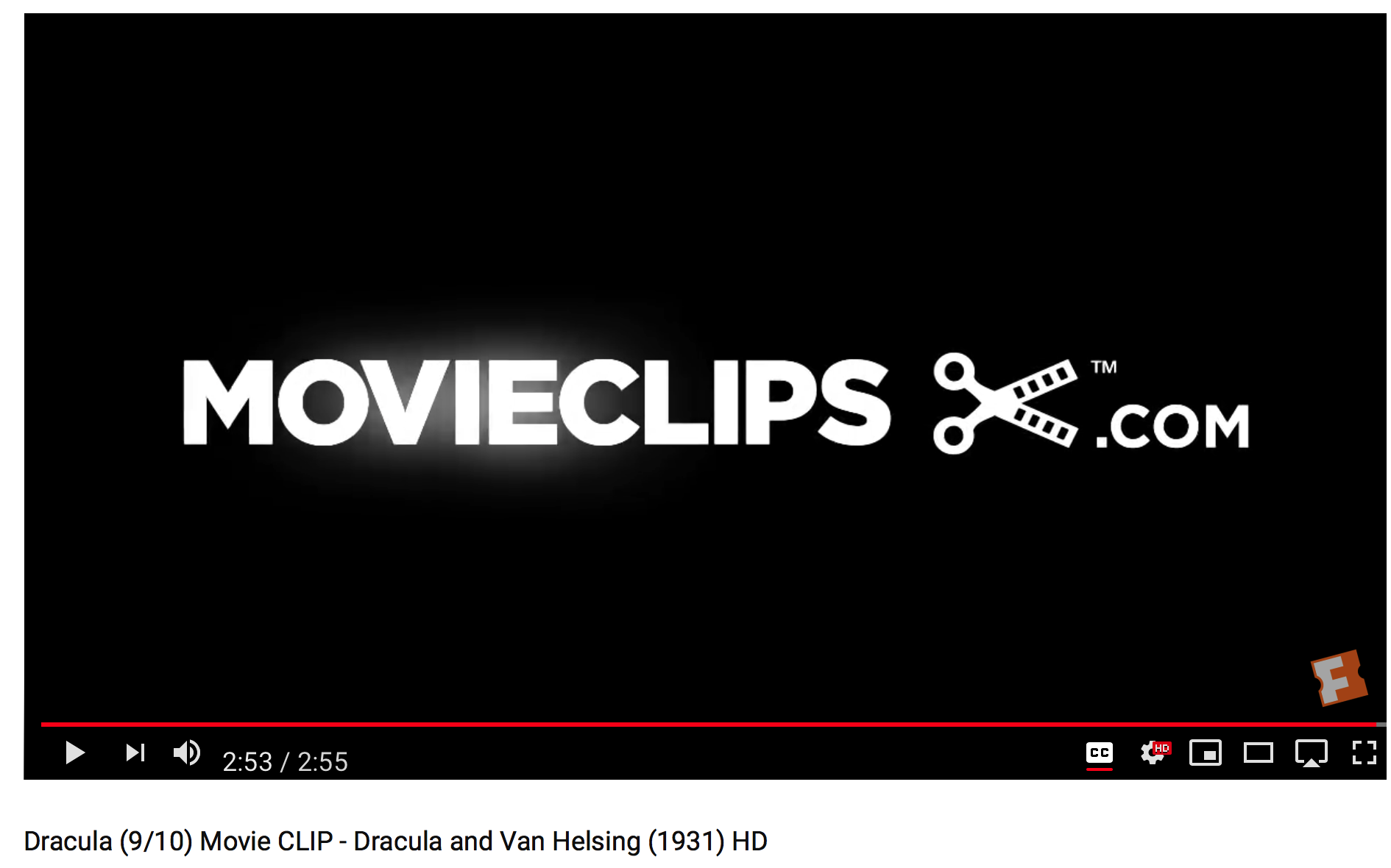
Selected shots posted on social media
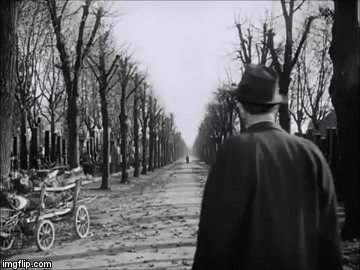
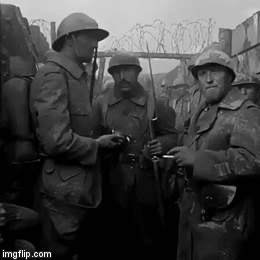

November 20:
Required Viewing:
Three Women (dir. Robert Altman, 1977)
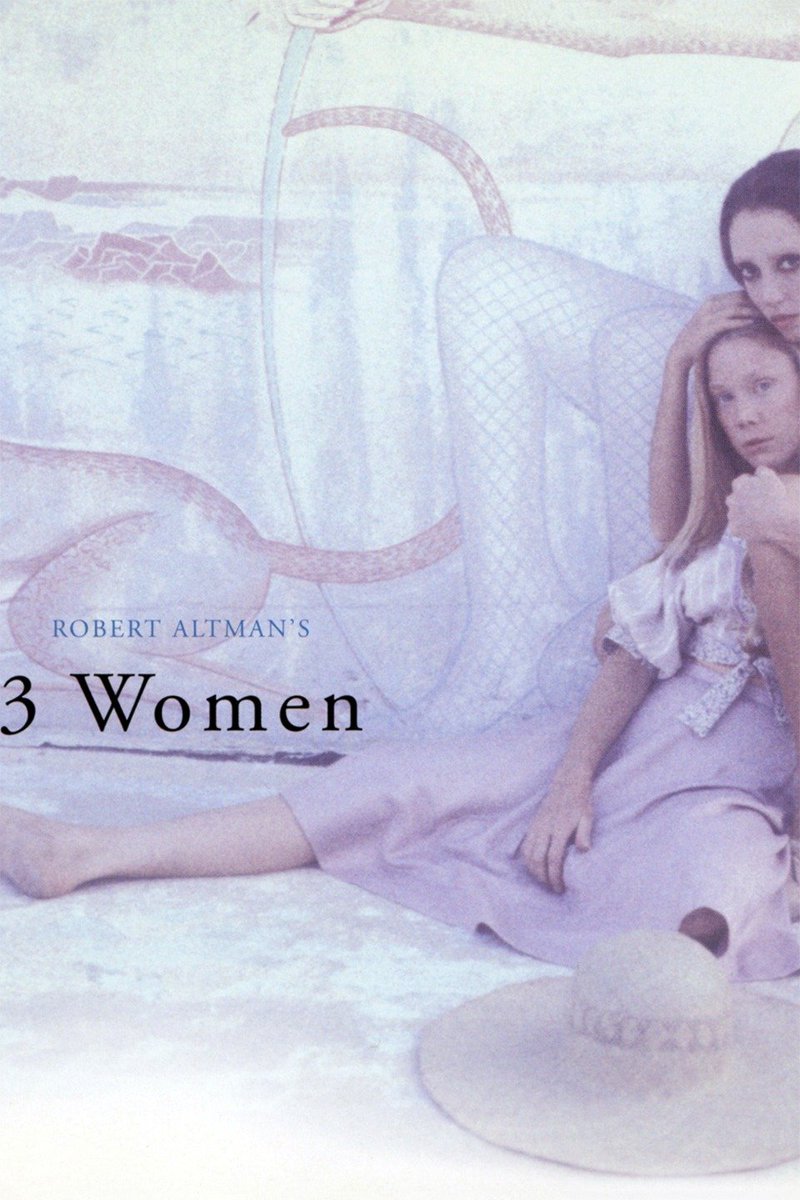
November 22: Thanksgiving
November 27:
Required Viewing:
The 39 Steps The DVD is on reserve in Smathers (Library West)
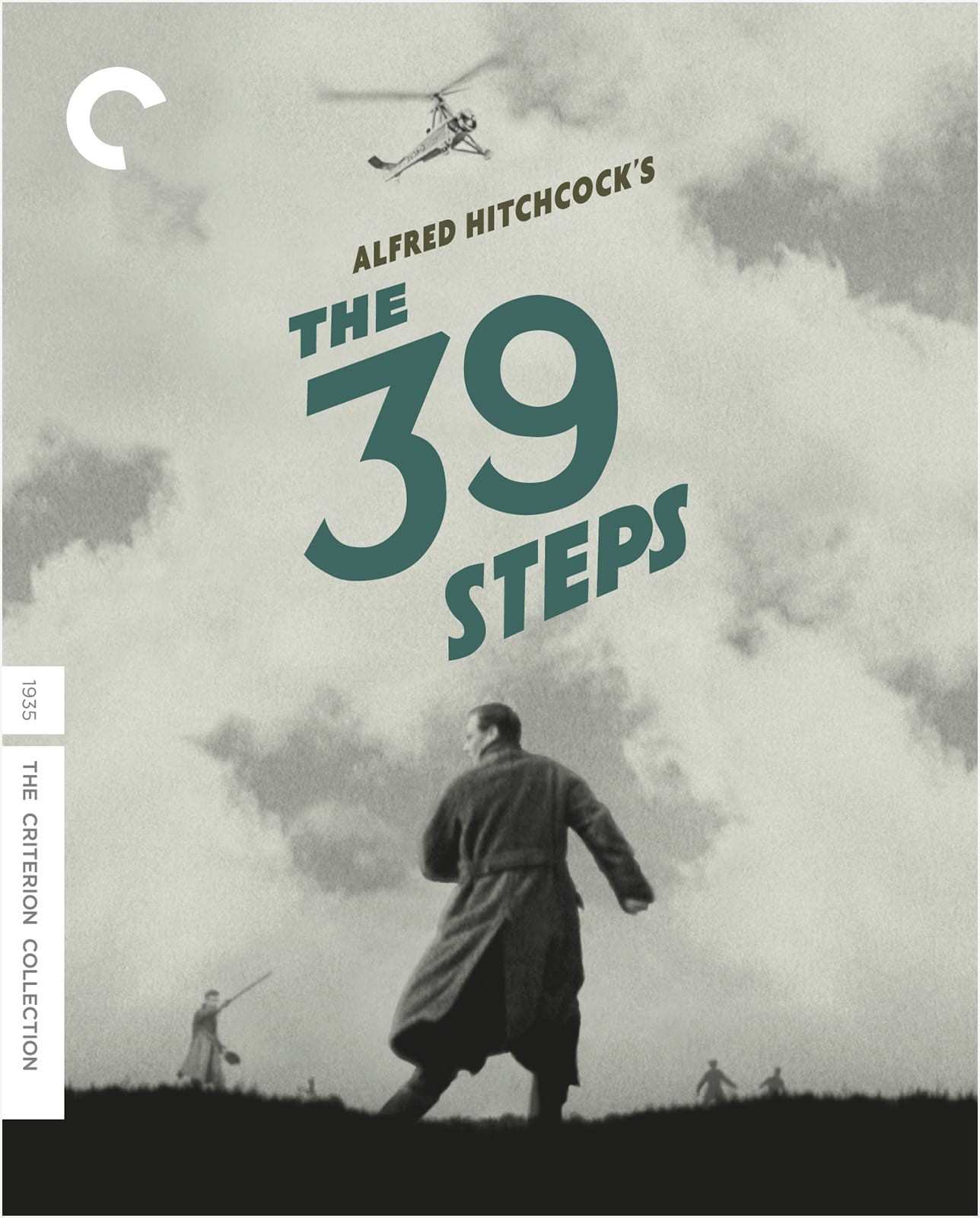
Screening November 28 W 9-11 ROLFS 115 The 39 Steps with audio commentary by Alfred Hitchcock scholar Marian Keane
DQS DUE November 28 by 11:30 p.m.
Last Assignment due December 3 by 5:00 p.m. No paper is due. Send me the discussion question you think is the best, the most thought provoking, the best written, the most interesting, of the semester. Just cut and paste it into a word doc and send it to me at the usual gmail address. So you see, the assignment is very simple. However, I will admit that it does have a Kafkaesque dimension to it, an dimension that may haunt you as you try to arrive at your judgment, passing over sentences without passing sentence, discovering it is you yourself that is on trial as you take responsibility for your verdict.
November 29:
Required Viewing:
Psycho (dir. Alfred Hitchcock, 1960)
Recommended Viewing:
Underground (1928, dir. Anthony Asquith, GB HD)
Online with correct aspect ratio, uncropped, and Spanish subtitles
Online with image cropped, no subtitles
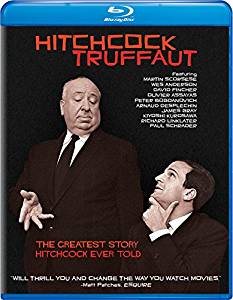
December 4:
Last Assignment due December 3 by 5:00 p.m. No paper is due. Send me the discussion question you think is the best, the most thought provoking, the best written, the most interesting, of the semester. Just cut and paste it into a word doc and send it to me at the usual gmail address. So you see, the assignment is very simple. However, I will admit that it does have a Kafkaesque dimension to it, an dimension that may haunt you as you try to arrive at your judgment, passing over sentences without passing sentence,yourself on trial as you take responsibility for your verdict.
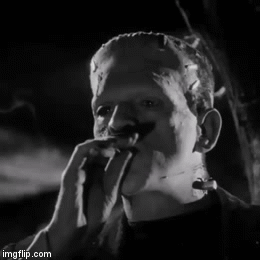

There will be some required screenings for this class on W 9-11 in ROLFS 115. You may skip the screenings as long as you watch the assigned blu-ray edition of the film.
Criterion’s ‘The Tree of Life’ Is Not a Director’s Cut, but a New Movie From Terrence Malick
Malick says that the new, 188-minute edit of his 2011 drama starring Brad Pitt is another version altogether.
1. Blood Simple The Criterion Collection- DIRECTOR-APPROVED EDITION (dIr. Coen Brothers, 1984) I've put the blu-ray on reserve in Smathers (Library West).

DIRECTOR-APPROVED BLU-RAY SPECIAL EDITION FEATURES
- New, restored 4K digital transfer, approved by cinematographer Barry Sonnenfeld and filmmakers Joel and Ethan Coen, with 5.1 surround DTS-HD Master Audio soundtrack
- New conversation between Sonnenfeld and the Coens about the film's look, featuring Telestrator video illustrations
- New conversation between author Dave Eggers and the Coens about the film's production, from inception to release
- New interviews with composer Carter Burwell, sound mixer Skip Lievsay, and actors Frances McDormand and M. Emmet Walsh
- Trailers
- PLUS: An essay by novelist and critic Nathaniel Rich


Book XVI. Containing the Space of Five Days
Chapter I. Of Prologues
I HAVE heard of a dramatic writer who used to say, he would rather write a play than a prologue; in like manner, I think, I can with less pains write one of the books of this history than the prefatory chapter to each of them.
To say the truth, I believe many a hearty curse hath been devoted on the head of that author who first instituted the method of prefixing to his play that portion of matter which is called the prologue; and which at first was part of the piece itself, but of latter years hath had usually so little connexion with the drama before which it stands, that the prologue to one play might as well serve for any other. Those indeed of more modern date, seem all to be written on the same three topics, viz., an abuse of the taste of the town, a condemnation of all contemporary authors, and an eulogium on the performance just about to be represented. The sentiments in all these are very little varied, nor is it possible they should; and indeed I have often wondered at the great invention of authors, who have been capable of finding such various phrases to express the same thing.
In like manner I apprehend, some future historian (if any one shall do me the honour of imitating my manner) will, after much scratching his pate, bestow some good wishes on my memory, for having first established these several initial chapters; most of which, like modern prologues, may as properly be prefixed to any other book in this history as to that which they introduce, or indeed to any other history as to this.
But however authors may suffer by either of these inventions, the reader will find sufficient emolument in the one as the spectator hath long found in the other.
First, it is well known that the prologue serves the critic for an opportunity to try his faculty of hissing, and to tune his cat-call to the best advantage; by which means, I have known those musical instruments so well prepared, that they have been able to play in full concert at the first rising of the curtain.
The same advantages may be drawn from these chapters, in which the critic will be always sure of meeting with something that may serve as a whetstone to his noble spirit; so that he may fall with a more
hungry appetite for censure on the history itself. And here his sagacity must make it needless to observe how artfully these chapters are calculated for that excellent purpose; for in these we have always taken care to intersperse somewhat of the sour or acid kind, in order to sharpen and stimulate the said spirit of criticism.
Again, the indolent reader, as well as spectator, finds great advantage from both these; for, as they are not obliged either to see the one or read the others, and both the play and the book are thus protracted, by the former they have a quarter of an hour longer allowed them to sit at dinner, and by the latter they have the advantage of beginning to read at the fourth or fifth page instead of the first, a matter by no means of trivial consequence to persons who read books with no other view than to say they have read them, a more general motive to reading than is commonly imagined; and from which not only law books, and good books, but the pages of Homer and Virgil, of Swift and Cervantes, have been often turned over.
Many other are the emoluments which arise from both these, but they are for the most part so obvious, that we shall not at present stay to enumerate them; especially since it occurs to us that the principal merit of both the prologue and the preface is that they be short.
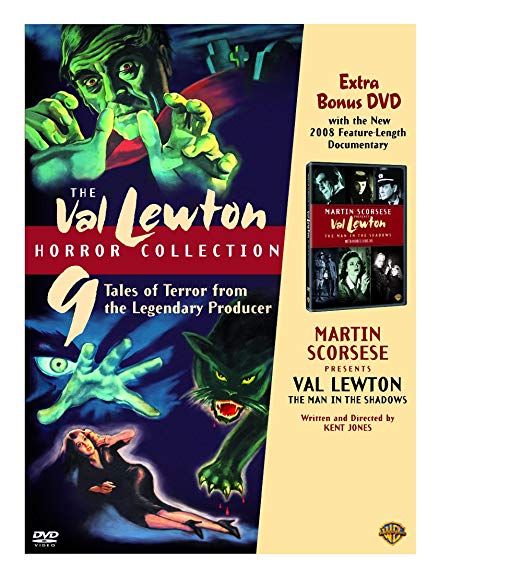
William Friedkin's audiocommentary onsland of Lost Souls
How does William Friedkin's audiocommentary on The Leopard Man make The Leopard Man into a much better film than it may in fact
Reommended Viewing:
INDICATOR LIMITED 2-DISC BLU-RAY EDITION SPECIAL FEATURES:
The Old Dark House
(dir. James Whale, 193?)
In class, we will watch selected scenes with audio-commentaries by actor Gloria Stuart and James Whale biographer James Curtis.
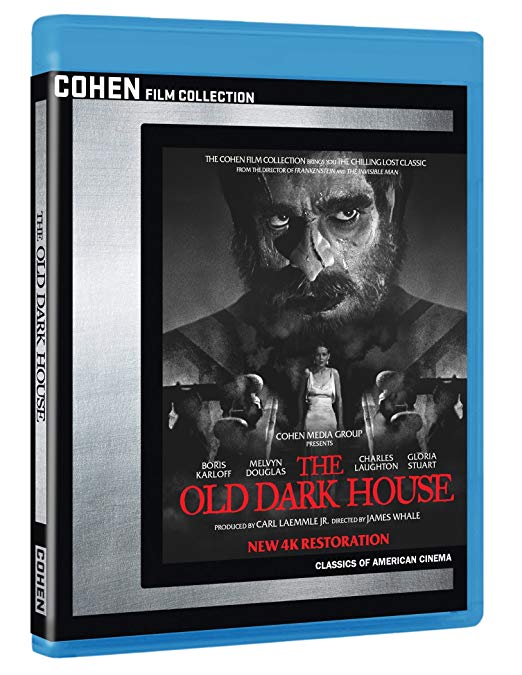
From the director of Frankenstein, a group of stranded travelers stumble upon a strange old house, and find themselves at the mercy of the highly eccentric, and potentially dangerous, Femm family. This well-performed, atmospheric thriller features the first starring horror role for Boris Karloff, as the hulking, disfigured butler. Based on the novel Benighted (1927) by J. B. Priestley. The Cohen Film Collection is proud to present this stunning new 4K restoration.
BONUS FEATURES:
- feature length audio commentary by actor Gloria Stuart
- feature length audio commentary by James Whale biographer James Curtis
- interview with director Curtis Harrington on the rediscovery of this once thought-lost film
- new interview with Sara Karloff
- re-release trailer
Last paper do a film essay using digital film or powerpoint and audio-record your essay.
Paper (500 words) due December 5 by 5:00 p.m. (please email it to me at [email protected]).
Watching a Film as a Director
The Leopard Man (dir. Jacques Tourneur, 1943) with William Friedkin's audiocommentary
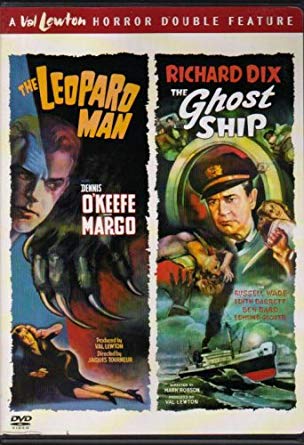
William Friedkin's introduction to The Exorcist
Here is your first assignment, due, August 27 by 5 p.m. Two discussion questions (or DQs) on Leonard J. Leff's audiocommentary in the Criterion edition of Rebecca(Alfred Hitchcock, 1939), numbered one and two. Put your name at the top of the document. Email all work to me at [email protected]
The required Criterion DVD of Rebecca is on reserve in the Architecture and Fine Arts Library.
It is essential that you understand what I mean by " discussion question." If you are uncertain as to what I am asking of you, namely, to respond to the readings themselves, not use them as launcing pads to get to other topics, just stay with the readings. Reread. Do not default to something you know how to do just because you don't know for sure how to write a discussion question. Don't be a loser! Trust yourself. If you send me work that is merely perfunctory or is not what I consider to be a discussion question, I will not post it or accept it. If you don't see your DQs posted in the emails I send them to the class listserv each Monday and Wednesday evening, you can always ask me why I didn't during office hours or by appointment. We CAN communicate through it. My office is in 4134 Turlington.
DQs are always due by 5:30 the day before class.
Ten minutes of birdsong from the English countryside
Some films we'll watch this semester you will have to either purchase or go to the screening to see.
All films that are linked below, will direct you to UF Kanopy where you may see them for free. All film titles that are not linked below, you will have to find and see our your own. All linked readings will take you to a pdf. All readings that are not linked you will have to find on your own. You will need to download a VPN onto your computer and then connect if you wish to watch films on Kanopy off-campus. Instructions can be found here: https://vpn.ufl.edu/+CSCOE+/logon.html
Since I know many students read online rather than in print, I will make sure we can always get to the page or to the shot we are discussing by having someone, either me or a student, standing near the computer at the front of the class so we can get there. I do not allow any electronic device such as iphones or ipads or laptops, etc. to be open during class. Everyone needs to be in class 100 percent. Learning to read closely is not something you can multi-task.
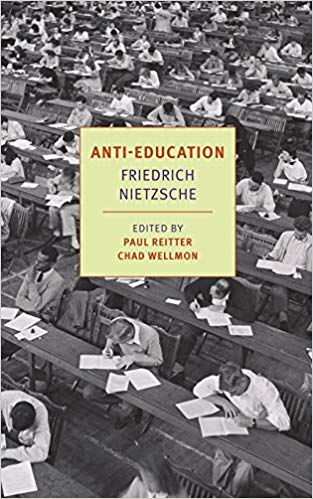
"Historical, in fact philological, considerations have slowly but surely taken the place of profound explorations of eternal problems. The question becomes: What did this or that philosopher think or not think? And is this or that text rightly ascribed to him or not? And even: Is this variant of a classical text preferable to that other? Students in university seminars today are encouraged to occupy themselves with such emasculated inquiries. As a result, of course, philosophy itself is banished from the university altogether."
Friedrich Nietszche, Anti-Education
Please read the Class Policies now.
Gadaj?ce g?owy / Talking Heads (1980)
Werner Herzog on the importance of reading (go to 4:05)
You will need to watch all assigned films on your own. You may rent, borrow, or purchase them (as downloads or discs).
Email all work for the course to me at [email protected]
Do you like to watch? Do you like to watch in the dark? With other people there doing the same thing you are? Or just alone with yourself, your cell phone off? Do you like watching films. Do you like to observe when you walk around outside? Do you notice things about this or that person, things you note in your memory as you begin to make up a story about them? About people, about visual representations of them? Do you care?
Have a group of students lead for each week on the film--cover itin depth for two classes--and be experts on the film research, divide it up--in the film, listen to the commentary, compile a bibliography. Be experts on the film., ocys on formal aspects that define these films and their relation to violence, sexuality, sexism, misogyny, misanthropy, and nationalism.
Turn in your notes to me a week in advance. Be prepared to bring in the information you've learned as it is relevant to discussion.
Get the DVD yourselves.
Build to a reasearch paper using your notes and biblio to discuss one film you have led on, if you wish,and one film you have not.
August 31:
Due August 28 by 5 p.m. Two discussion questions numbered one and two, with your name at the top of the document. Email your DQs in one word document with last name as the document title to me at [email protected].
September 5:
Required Viewing:

Othello The Criterion Collection
Criterion Collection, Special Edition
Gloriously cinematic despite its tiny budget, Orson Welles's Othello is a testament to the filmmaker s stubborn willingness to pursue his vision to the ends of the earth. Unmatched in his passionate identification with Shakespeare's imagination, Welles brings his inventive visual approach to this enduring tragedy of jealousy, bigotry, and rage, and also gives a towering performance as the Moor of Venice, alongside Suzanne Cloutier as the innocent Desdemona, and Micheal MacLiammoir as the scheming Iago. Shot over the course of three years in Italy and Morocco and plagued by many logistical problems, this fiercely independent film joins Macbeth and Chimes at Midnight in making the case for Welles as the cinema's most audacious interpreter of the Bard.
TWO-BLU-RAY SPECIAL EDITION FEATURES
- New, restored 4K digital transfers of two versions of the film, the 1952 European one and the 1955 U.S. and UK one, with uncompressed monaural soundtracks
- Audio commentary from 1995 featuring filmmaker Peter Bogdanovich and Orson Welles scholar Myron Meisel
- Filming 'Othello,' Welles s last completed film, a 1979 essay-documentary
- Return to Glennascaul, a 1953 short film made by actors Micheal MacLiammoir and Hilton Edwards during a hiatus from shooting Othello
- New interview with Welles biographer Simon Callow
- Souvenirs d' 'Othello,' a 1995 documentary about actor Suzanne Cloutier by Francois Girard
- New interview with Welles scholar Francois Thomas on the two versions
- New interview with Ayanna Thompson, author of Passing Strange: Shakespeare, Race, and Contemporary America
- Interview from 2014 with scholar Joseph McBride
- PLUS: An essay by film critic Geoffrey O'Brien
TWO-BLU-RAY SPECIAL EDITION FEATURES
- New, restored 4K digital transfers of two versions of the film, the 1952 European version and the 1955 U.S. version, with uncompressed monaural soundtracks
- Audio commentary featuring filmmaker Peter Bogdanovich and Orson Welles scholar Myron Meisel
- Return to Glennascaul, a 1953 short film made by MacLiammóir and actor Hilton Edwards during a hiatus from shooting Othello
- New interview with Welles biographer Simon Callow
- New interview with Welles scholar François Thomas on the differences between the two versions
- New interview with Ayanna Thompson, author of Passing Strange: Shakespeare, Race, and Contemporary America
- Interview from 2014 with Welles scholar Joseph McBride
- More!
- PLUS: An essay by film critic Geoffrey O’Brien
Restored Version with audiocommentary
Original Version without Commentary
Supplement on different sound designs for the introduction
Reading Reading:
Philip Gossett, "CRITICAL EDITIONS: MUSICOLOGISTS AND COPYRIGHT" Fontes Artis Musicae Vol. 52, No. 3 (July-September 2005), pp. 139-144
Glenn W. Most, "What is a Critical Edition?" University of Chicago/Scuola Normale Superiore di Pisa, USA/Italy
Recommended:
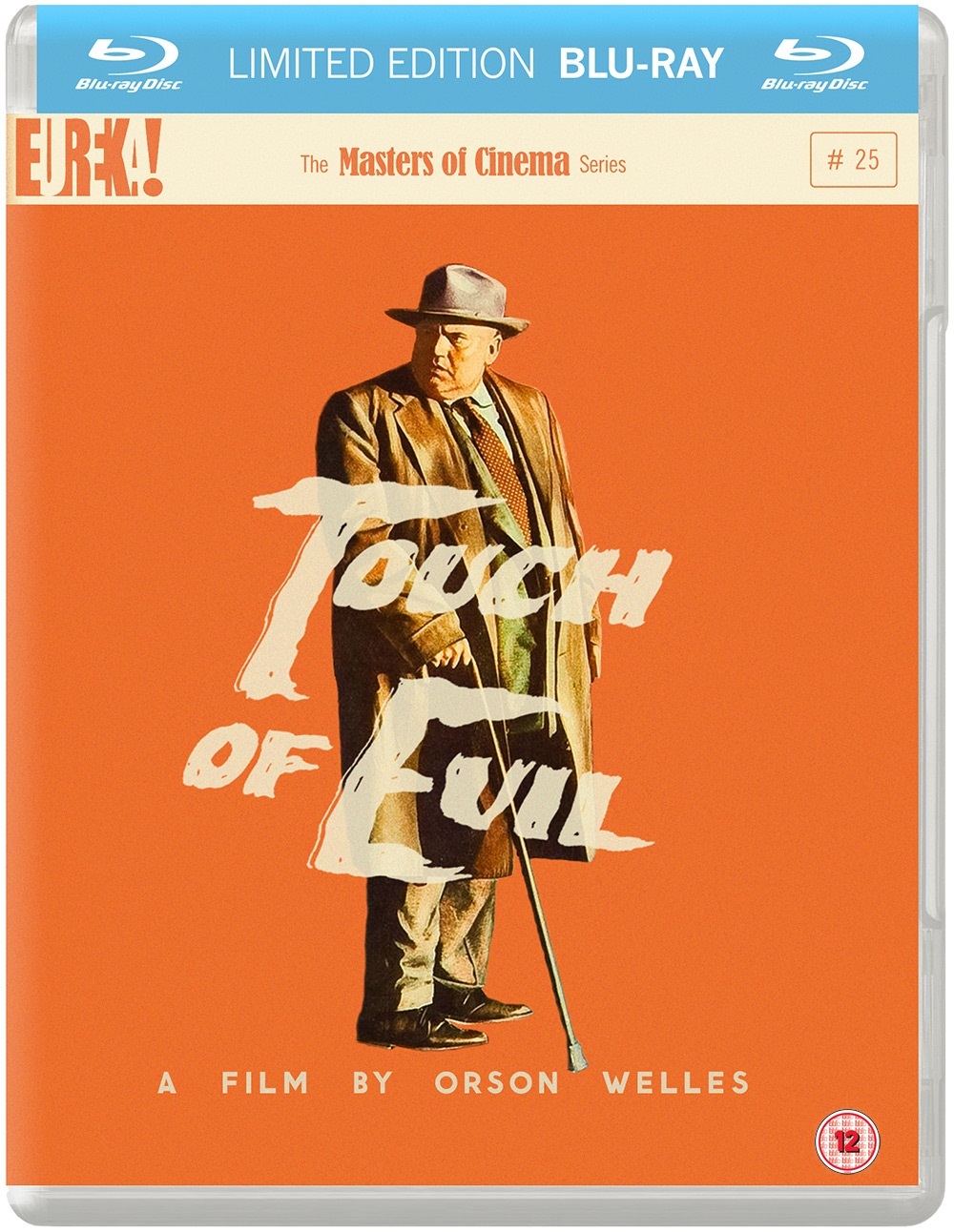
September 7:
Reading Reading:
September 12:


Dietrich and von Sternberg in Hollywood Morocco, Dishonored, Shanghai Express, Blonde Venus, The Scarlet Empress, The Devil Is a Woman The Criterion Collection
Reading Reading:
September 14:

Contempt The Criterion Collection
First Paper (700 words) DUE Saturday September 17 by 11:59 p.m.
Click here for the assignment Email all work to me at [email protected] Do the film clip assignment and record an audiocommentary that covers that scene.
September 19:
Required Viewing:
Carl Th. Dreyer's DAY OF WRATH - Criterion Collection
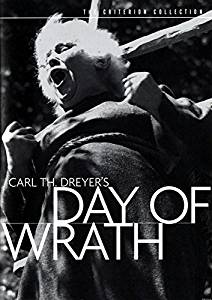
Recommended:
September 21:

Required Viewing:
With Vampyr, Danish filmmaker Carl Theodor Dreyer channeled his genius for creating mesmerizing atmosphere and austere, unsettling imagery into the horror genre. The result a chilling film about a student of the occult who encounters supernatural haunts and local evildoers in a village outside Paris is nearly unclassifiable. A host of stunning camera and editing tricks and densely layered sounds creates a mood of dreamlike terror. With its roiling fogs, ominous scythes, and foreboding echoes, Vampyr is one of cinema's greatest nightmares.
BLU-RAY SPECIAL EDITION FEATURES
- High-definition digital transfer of the original German version of the film, from the 1998 restoration by Martin Koerber and the Cineteca di Bologna, with uncompressed monaural soundtrack
- Alternate version with English text
- Audio commentary featuring film scholar Tony Rayns
- Carl Th. Dreyer, a 1966 documentary by Jorgen Roos chronicling Dreyer's career
- Video essay by scholar Casper Tybjerg on Dreyer's influences in creating Vampyr
- Radio broadcast from 1958 of Dreyer reading an essay about filmmaking
- PLUS: A booklet featuring essays by critics Mark Le Fanu and Kim Newman, a piece by Koerber on the restoration, and a 1964 interview with producer and actor Nicolas de Gunzburg
- AND: A book featuring Dreyer and Christen Jul's original screenplay and Sheridan Le Fanu's 1872 story 'Carmilla,'; a source for the film
September 26
Required Viewing:

Ran (The Criterion Collection) (1985)
September 28: Making Your Own audiocommentary of selected scenes
Required Viewing:
The Narrow Margin (dir. Richard Fleischer, 1952)
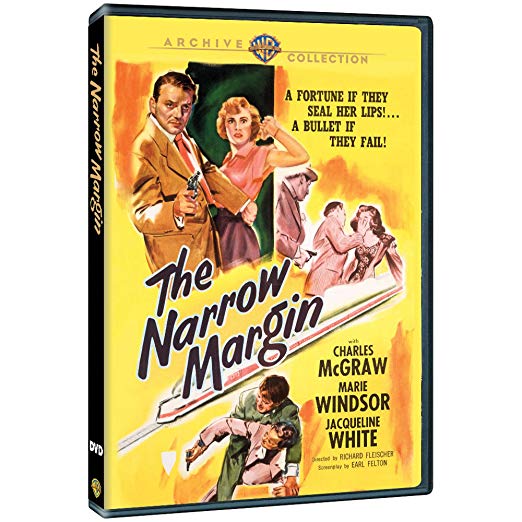
October 5:
Required Viewing:

The Cohen Brothers
The career-long darkly comic road trip through misfit America of Joel and Ethan Coen (Inside Llewyn Davis) began with this razor-sharp, hard-boiled neonoir set somewhere in Texas, where a sleazy bar owner sets off a torrent of violence with one murderous thought. Actor M. Emmet Walsh (Blade Runner) looms over the proceedings as the slippery private eye with a yellow suit, a cowboy hat and no moral compass, and Frances McDormand (Fargo) gives a cunning debut performance that set her on the road to stardom. The tight scripting and inventive camera work that have marked the Coens work for decades is all here, as cinematographer Barry Sonnenfeld (Raising Arizona) trades black-and-white chiaroscuro for neon signs and jukebox colors that combine with a haunting score by Carter Burwell (Barton Fink) to lurid and thrilling effect. Blending elements from pulp fiction and low-budget horror flicks, Blood Simple reinvented the film noir for a new generation, and marked the arrival of a filmmaking ensemble that would help to transform the American independent cinema scene in the 1980s.
DIRECTOR-APPROVED BLU-RAY SPECIAL EDITION FEATURES
- New, restored 4K digital transfer, approved by cinematographer Barry Sonnenfeld and filmmakers Joel and Ethan Coen, with 5.1 surround DTS-HD Master Audio soundtrack
- New conversation between Sonnenfeld and the Coens about the film s look, featuring Telestrator video illustrations
- New conversation between author Dave Eggers and the Coens about the film s production, from inception to release
- New interviews with composer Carter Burwell, sound mixer Skip Lievsay, and actors Frances McDormand and M. Emmet Walsh
- Trailers
- PLUS: An essay by novelist and critic Nathaniel Rich
Wener Herzog audiocommentaries / voice-over narration
Grizzly Man is a 2005 American documentary film by German director Werner Herzog.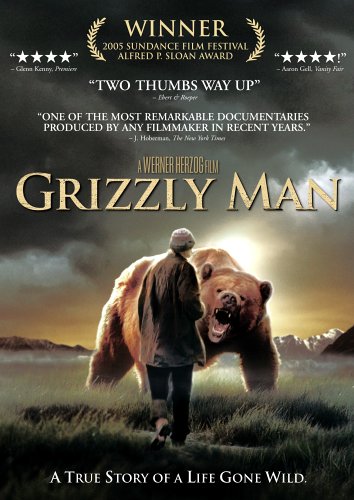
October 7:
Required Viewing:
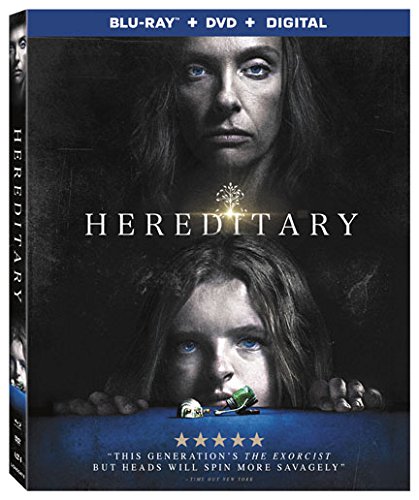
October 10:
Required Viewing:
October 12:
Required Viewing:
Cat People
The first of the horror films producer Val Lewton (The Body Snatcher, I Walked with a Zombie) made for RKO Pictures redefined the genre by leaving its most frightening terrors to its audience s imagination. Simone Simon (La bête humaine) stars as a Serbian émigré in Manhattan who believes that, because of an ancient curse, any physical intimacy with the man she loves (Kent Smith) will turn her into a feline predator. Lewton, a consummate producer-auteur who oversaw every aspect of his projects, found an ideal director in Jacques Tourneur (Out of the Past), a chiaroscuro stylist adept at keeping viewers off-kilter with startling compositions and psychological innuendo. Together, they eschewed the canned effects of earlier monster movies in favor of shocking with subtle shadows and creative audio cues. One of the studio s most successful movies of the 1940s, Cat People raised the creature feature to new heights of sophistication and mystery.
BLU-RAY SPECIAL EDITION FEATURES
- New, restored 2K digital transfer, with uncompressed monaural soundtrack
- Audio commentary from 2005 featuring film historian Gregory Mank, with excerpts from an audio interview with actor Simone Simon
- Val Lewton: The Man in the Shadows, a 2008 feature-length documentary that explores the life and career of the legendary Hollywood producer
- Interview with director Jacques Tourneur from 1977
- New interview with cinematographer John Bailey about the look of the film
- Trailer
- PLUS: An essay by critic Geoffrey O'Brien

October 19: Film History
Required Viewing: (Streaming)
Out of the Past
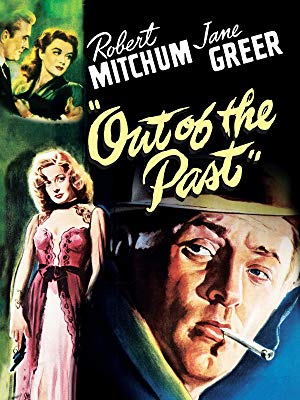
October 24:
Required Viewing:
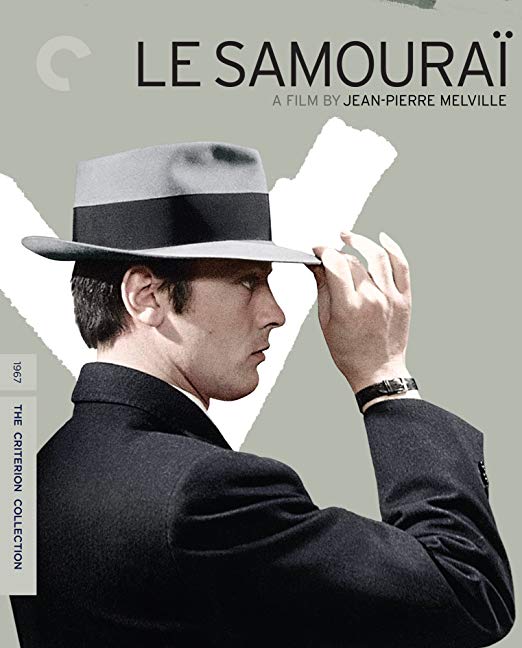
In a career-defining performance, Alain Delon plays Jef Costello, a contract killer
with samurai instincts. After carrying out a flawlessly planned hit, Jef finds himself caught between a persistent police investigator and a ruthless employer, and not even his armor of fedora and trench coat can protect him. An elegantly stylized masterpiece of cool by maverick director Jean-Pierre Melville, Le samourai is a razor-sharp cocktail of 1940s American gangster cinema and 1960s French pop culture with a liberal dose of Japanese lone-warrior mythology.
BLU-RAY SPECIAL EDITION FEATURES
- New high-definition digital restoration, with uncompressed monaural soundtrack
- Interviews with Rui Nogueira, editor of Melville on Melville, and Ginette Vincendeau, author of Jean-Pierre Melville: An American in Paris
- Archival interviews with Melville and actors Alain Delon, François Perier, Nathalie Delon, and Cathy Rosier
- Melville-Delon: D'Honneur et de nuit (2011), a short documentary exploring the friendship between the director and the actor and their iconic collaboration on this film
- Trailer - PLUS: An essay by film scholar David Thomson, an appreciation by filmmaker John Woo, and excerpts from Melville on Melville
October 26:
Required Viewing:
October 31:
Required Viewing:

November 2:
Required Viewing:
A pair of siblings (Ministry of Fear’s Ray Milland and The Philadelphia Story’s Ruth Hussey) from London purchase a surprisingly affordable, lonely cliff-top house in Cornwall, only to discover that it actually carries a ghostly price; soon they’re caught up in a bizarre romantic triangle from beyond the grave. Rich in atmosphere, THE UNINVITED, directed by Lewis Allen (Suddenly), was groundbreaking for the seriousness with which it treated the haunted-house genre, and it remains an elegant and eerie experience, featuring a classic score by Victor Young (Written on the Wind). A tragic family past, a mysteriously locked room, cold chills, bumps in the night—this gothic Hollywood classic has it all.
November 7:

Required Viewing:
From the director of Frankenstein, a group of stranded travelers stumble upon a strange old house, and find themselves at the mercy of the highly eccentric, and potentially dangerous, Femm family. This well-performed, atmospheric thriller features the first starring horror role for Boris Karloff, as the hulking, disfigured butler. Based on the novel Benighted (1927) by J. B. Priestley. The Cohen Film Collection is proud to present this stunning new 4K restoration.
BONUS FEATURES:
- feature length audio commentary by actor Gloria Stuart
- feature length audio commentary by James Whale biographer James Curtis
- interview with director Curtis Harrington on the rediscovery of this once thought-lost film
- new interview with Sara Karloff
- re-release trailer
November 9: The Devil is a Woman
Required Viewing:

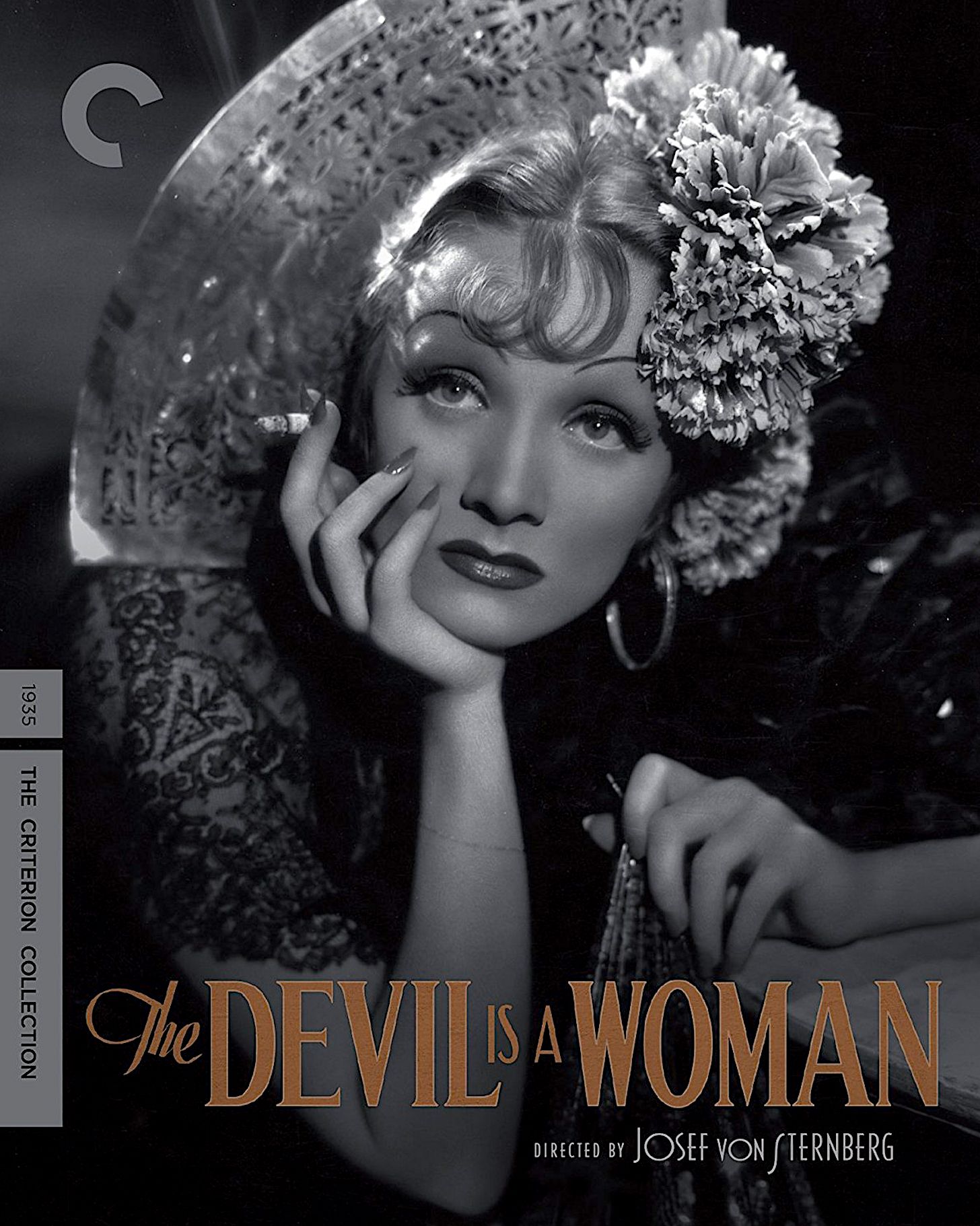
November 11:
The Devil is a Woman

"In-Camera: The Naïve Visual Effects of Dracula" (18:44) "Methods and Madness: Visualizing Dracula" (12:04) i
"deleted scenes"
That Obscure Object of Desire
Required Viewing:
Second Paper (500 words) DUE Sunday November 5 by 11:59 p.m. Take a film released on DVD that is part of the film canon (or should be) and design your own supplements for it. For example, the Narrow Margin (or the introductions on the French DVDs)
Email your paper (as an attachment) to me at [email protected]. Put your name in the subject title or header of your title. Put your name in your paper.
Grading: I will meet with you in person to discuss your paper with you. PLEASE BE ADVISED: If you didn't do the asignment, a close reading, your grade is an automatic E. If didn't put your name on your paper, it's an automatic E. If you didn't have a proper title, it's an automatic E. If you didn't have a thesis, it's an automatic E. One third of your grade will be based on your title; one third on your thesis; and one third on the rest of your paper.
November 7:
Required Viewing:
November 9:
Required Viewing:
November 14:
Required Reading:
November 16:
Required Viewing:
Required Reading:
November 23: 
Required Viewing:
SPECIAL EDITION FEATURES
November 25:
Required Viewing:
November 28:
Required Viewing:
November 30:
Thanksgiving
December 5:
Required Viewing:
Last paper do a film essay using digital film or powerpoint and audio-record your essay.
Paper (500 words) due December 5 by 5:00 p.m. (please email it to me at [email protected]).
Class partly about understanding history through film, understanding film history and history in relation to a decade or a period, and partly showing repetition and cultural stagnation in the present. We will put into question: what is film? What is history? How does film allegorize rather than document history?
What is an ideologue? What is an intellectual? What is fake news? How do you decide if a source is reliable? Glenn greenwald at the Intercept versus Jimmy Dore show versus Max Keiser Report versus Alex Jones at infowars
Have a group of students lead for each week on the film--cover itin depth for two classes--and be experts on the film research, divide it up--in the film, listen to the commentary, compile a bibliography. Be experts on the film., ocys on formal aspects that define these films and their relation to violence, sexuality, sexism, misogyny, misanthropy, and nationalism.
Turn in your notes to me a week in advance. Be prepared to bring in the information you've learned as it is relevant to discussion.
Get the DVD yourselves.
Build to a reasearch paper using your notes and biblio to discuss one film you have led on, if you wish,and one filmyou havenot.
August
SENIORS WITH STUDENTS / THE RE-ABLED BODY
Apocalyse Now
WHAT YOU NEED TO KNOW: Your assignment is to do a close reading of an assigned text. Focus on a passage or a scene and discuss it in detail. That passage or scene is your paper topic. Cite the text or film to make your points. Develop your thesis. The text or is your evidence. If you don't know what a close reading is and have never done one before, be sure to go to http://writingcenter.fas.harvard.edu/pages/how-do-close-reading. You may also ask me for clarification. You must also know how to write a research paper, or analytical essay. You will need a title for your paper and a thesis, an argument that you can state in one sentence. Your thesis should go at the end of your first paragraph. To make sure we share the same understanding of the assigned paper, please read http://users.clas.ufl.edu/burt/paper.html before you begin writing. You may figure out your title before you write your paper, but usually, you only figure out your title after you figure out your thesis. And you figure out your thesis by writing your paper. What you think is your conclusion often needs to be moved up from the end of the essay to the front. Then you are ready to make your final revisions and add a new concluding paragraph. You may also have come up with a new title in the course of writing the paper. And then you are ready to proofread your paper. And then you will have finished writing your paper. Congratulations! :)
D
Fre